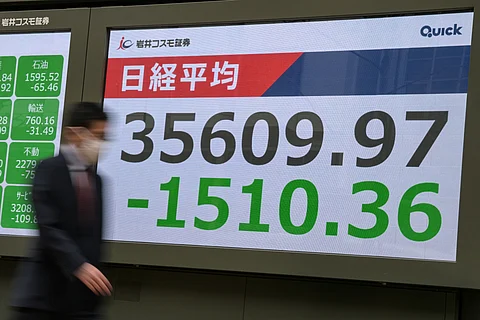
- NEWS
- the EDIT
- COMMENTARY
- BUSINESS
- LIFE
- SHOW
- ACTION
- GLOBAL GOALS
- SNAPS
- DYARYO TIRADA
- MORE

The Supreme Court (SC) has affirmed the Securities and Exchange Commission’s (SEC) authority to accredit certified public accountants (CPAs) acting as external auditors for companies with registered securities and secondary licenses.
In a resolution, the Supreme Court reversed its earlier rulings and upheld the constitutionality of Rule 68, Paragraph 3 of the Securities Regulation Code (SRC) Implementing Rules and Regulations (IRR) and SEC Memorandum Circular 13, Series of 2009 (MC 13).
The regulations set accreditation requirements for external auditors of publicly-listed companies, investment firms and other covered entities.
The case was filed by 1Accountants Party-List Inc., which claimed the SEC exceeded its mandate and restricted the practice of accountancy.
The SC ruled otherwise, saying that the SEC’s authority to regulate auditors is implied in its power to oversee covered entities.
The Court clarified that while the Board of Accountancy (BOA) regulates the accountancy profession, the SEC can impose accreditation requirements for auditors of entities under its jurisdiction.
“While the Accountancy Act created the BOA… to regulate the practice of accountancy… other government agencies like the SEC are not precluded from implementing the policy of the State for so long as the express or implied powers granted to them by law allow them to do so,” the court ruled.
It also noted that SEC accreditation applies only to CPAs conducting independent audits of covered entities, not to the broader practice of accountancy.
MC 13 similarly requires accreditation only for CPAs performing statutory audits.
The Court rejected claims that SEC accreditation curtails the right to practice accountancy, emphasizing that professional practice is a privilege subject to regulation.
“There being no right to practice accountancy, there could be no curtailment of such right to speak of. Thus, any additional burden imposed by the accreditation requirement on CPAs who wish to audit the AFS of covered entities is not a curtailment of a right but a condition on a mere privilege.”
It also clarified that SEC accreditation complements, rather than replaces, BOA regulations.
The SC noted that other financial regulators also require auditor accreditation.
It cited the General Banking Law of 2000, which allows the Bangko Sentral ng Pilipinas to require banks to hire accredited auditors, and the Insurance Code, which mandates insurers to engage only auditors accredited by the Insurance commissioner.
The Court also upheld the memorandum of agreement between the BOA and financial sector regulators, dismissing concerns over undue delegation of legislative power.
